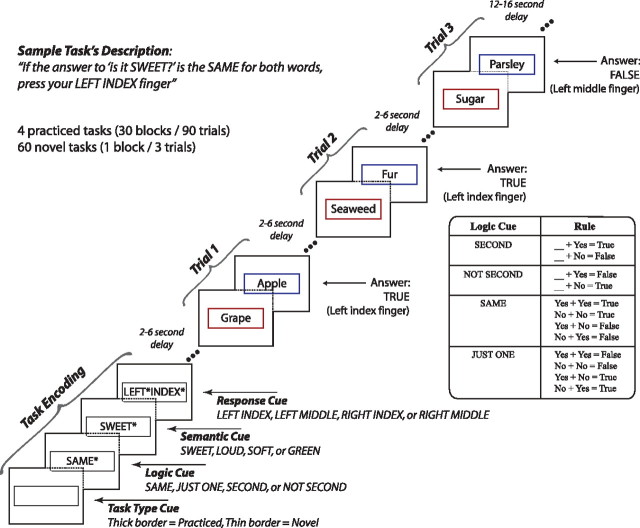Figure 2.
A novel cognitive paradigm for investigating rapid instructed task learning. The permuted rule operations paradigm involves permuting 12 task rules to create 64 unique tasks. Four of these tasks (counterbalanced across participants) were practiced in a prior behavioral session, while the remaining 60 were completely novel. Importantly, the individual rules were equally practiced while the task sets were not. Each task consisted of a logic rule, a sensory semantic rule, and a response rule, with four possible rules of each type. A block consisted of four encoding screens followed by three trials. The novel and practiced conditions were designed to be directly compared to each other, as they both control for stimulus novelty and task switching effects (both known to involve PFC) in addition to other general preparatory processes.

